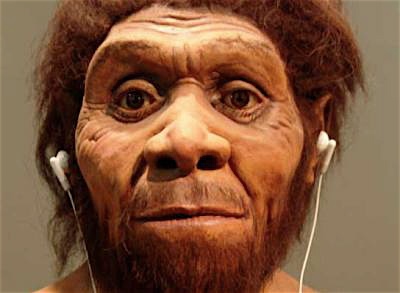How do we do this? Why are we so good at recognizing music?
“You hear only one note, and you already
know who it is,” he said. “So what I want to know is: how we do
this? Why are we so good at recognizing music?“

‘Listen to this,” Daniel Levitin said.
“What is it?” He hit a button on his computer keyboard and out came
a half-second clip of music. It was just two notes blasted on a raspy electric
guitar, but I could immediately identify it: the opening lick to the Rolling
Stones’ “Brown
Sugar.”
Then he played another, even shorter snippet: a single chord struck once on piano. Again I could instantly figure out what it was: the first note in Elton John’s “Benny and the Jets.”
Levitin beamed. “You hear only one note, and you already know who it is,” he said. “So what I want to know is: how we do this? Why are we so good at recognizing music?“
Ultimately, scientists say, his work offers a new way to unlock the mysteries of the brain: how memory works, how people with autism think, why our ancestors first picked up instruments and began to play.
Not all of Levitin’s idea have been easily accepted. He argues, for example, that music is an evolutionary adaptation: something that men developed as a way to demonstrate reproductive fitness. Music also helped social groups cohere. “Music has got to be useful for survival, or we would have gotten rid of it years ago,” he said.
If Levitin is correct and appreciating and recognizing music is a leftover Stone Age genetic capability – hopefully, it’s one we end up keeping.
Then he played another, even shorter snippet: a single chord struck once on piano. Again I could instantly figure out what it was: the first note in Elton John’s “Benny and the Jets.”
Levitin beamed. “You hear only one note, and you already know who it is,” he said. “So what I want to know is: how we do this? Why are we so good at recognizing music?“
Ultimately, scientists say, his work offers a new way to unlock the mysteries of the brain: how memory works, how people with autism think, why our ancestors first picked up instruments and began to play.
Not all of Levitin’s idea have been easily accepted. He argues, for example, that music is an evolutionary adaptation: something that men developed as a way to demonstrate reproductive fitness. Music also helped social groups cohere. “Music has got to be useful for survival, or we would have gotten rid of it years ago,” he said.
If Levitin is correct and appreciating and recognizing music is a leftover Stone Age genetic capability – hopefully, it’s one we end up keeping.
Posted: Wed - January 3, 2007 at 12:22 PM